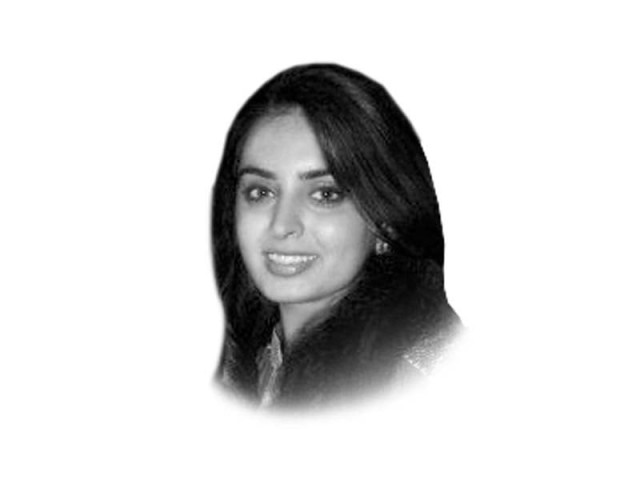Our narrative
A narrative is already emerging from this tense political struggle, clear in its broader vision of our nation state.

The writer is a lawyer practising in Lahore and a law graduate from the University of Cambridge
Yet, can such narratives exist in today’s polarised, heterogeneous and violent Pakistan? Or is a Pakistani national narrative essentially exclusionary, drowning out the voices of the marginalised and “have-nots” to propound a story that reinforces existing inequitable power structures, to which only the “haves” can relate? Ought there not to be a national narrative at all, but a plurality of narratives, all coexisting? No.
It is because of this plurality of narratives propounded in a vacuum left unattended by a unifying national story, that Pakistan is bereft with anti-state, anti-nationalist, extremist and terrorist forces, its integrity and ideology under attack. Plurality is not the issue, but rather the inability to accommodate such pluralism and re-articulate it in a cohesive, unifying national discourse, which does not silence discontent, critique and diversity.
Our historical narrative as an “Islamic” nation or homeland of Muslims, (however one may look at it) — created in response to the oppression suffered and foreseen by Muslims of united India — as a polity where all would be guaranteed equal rights and opportunities, regardless of religion, caste, class or gender, no longer serves, as effectively, to bind us as a collective. This is not a challenge to the two-nation theory, which some hold to be inherently flawed, an assertion that is anarchist and self-defeating. Instead, this is an acknowledgement that the political paradigm in Pakistan has changed.
We are a nation at war from within, the cohesiveness of our historical narrative faltering in the face of attacks on our ideology and integrity by terrorist, anti-state forces. These have expounded alternative narratives that challenge our nationhood and have inspired waves of violence across the sociopolitical milieu. We have lost lives, property and a sense of who we are. Does our state mandate a firebrand theological state, averse to religious tolerance or diversity? Do our provincial identities render the idea of a federalist Pakistan null? Who are we? What is our story?
These questions are real and especially pertinent in today’s context, as we move forward from a bloody election campaign, losing inspirational leaders and tireless political workers. This nation has stood resiliently against these attacks, against odds, and asserted its right to the democratic determination of its future.
There is a narrative already emerging from this tense and tight political struggle, clear, at least, in its broader vision of our nation state. It is a narrative that holds across the three major political contenders of these elections and has found support across their ranks and beyond. It is a narrative that condemns extremism, militancy and religiously- motivated violence. It is a narrative that espouses equality, tolerance, respect and protection of diversity. It is a narrative of resilience and courage. It envisages a nation that rejects fanaticism, both religious and sectarian, and propounds a tolerant, secure state. This narrative is neither constructed nor manoeuvred, nor thrust upon us through external forces. It is real and pervasive, and our collective response to years of strife and bloodshed. It is the reinvigorated narrative of Pakistan that must fill the vacuum and overcome the discourses opposed to our nationhood.
Published in The Express Tribune, May 17th, 2013.













COMMENTS
Comments are moderated and generally will be posted if they are on-topic and not abusive.
For more information, please see our Comments FAQ